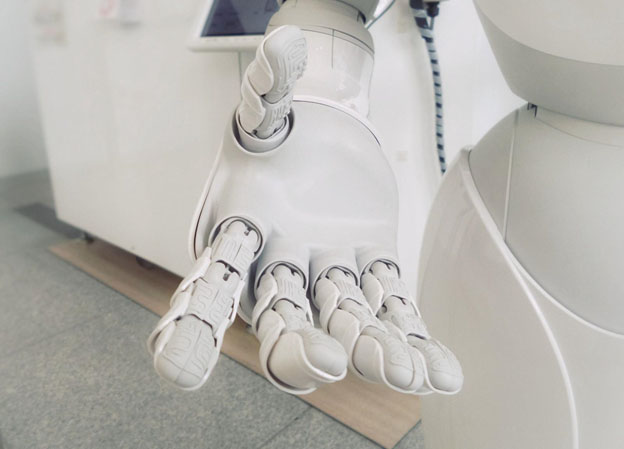Machine Learning By PhotosHobby
Six months ago, bustling cities with flourishing businesses and communities across the globe came to an unprecedented mandatory halt. As consumers everywhere adjusted accordingly to their new way of life, so changed their preferences, purchasing decisions — and almost every other daily activity as we know it. As cities begin to reopen, businesses everywhere must adapt to these changes to properly understand and connect with the 2020 consumer. To stay ahead of the competition and fill the gap in productivity and innovation that online workforces now face, many organizations are looking to Artificial Intelligence, and the pandemic continues to shed light on the value it can bring.
Industry experts continually look for innovative ways to capitalize on AI and Machine Learning, specifically to leverage existing and future (consumer) data. Now, with a pandemic that has forced everyone online there has never been more consumer data this easily accessible in history, and the use of AI in marketing is accelerating at a tremendous speed.
According to a 2018 study by MemSQL, more than 60% of marketers say that Artificial Intelligence is the most important aspect of their data strategy. So, how does this all work?
We have narrowed it down to 6 of the most interesting existing use cases for AI in marketing:
Recommendation engines most likely appear in your day-to-day online activities. This form of Artificial Intelligence predicts what current and potential customers might like, especially when there are a lot of product choices. McKinsey has estimated that 35% of consumer purchases from Amazon originate from product recommendations. Another e-commerce giant, Alibaba Group, utilizes recommendations based on customers past transactions, browsing history, product feedback, bookmarks and other online behavior. This powerful AI tool has proven to have a strong ROI as we see it being used amongst many major brands including Netflix and Youtube.
2. Forecasting
Typically, marketers utilize historical data to forecast future purchasing behavior. However, with machine learning assisted forecasting, marketers are able to access up to the minute data for more accurate predictions. While this seems very granular, this type of forecasting allows marketers to get ahead and predict the future of purchasing decisions with far better accuracy.
Ah, to be a content marketer in 2020. The content marketing industry is a force to be reckoned with, predicted to be worth over 412 billion by 2021. Given the circumstances we all face with the global pandemic, content creation, digital marketing and everything in between is even more important for a strong marketing strategy. Content creation can be utilized to build brand awareness, connect with existing and future customers and to establish relevance and authority in any space. Artificial Intelligence leveraging text generation or assistance as natural language processing — reading, deciphering, understanding and making sense of the human languages — is becoming more mainstream. The content marketing institute reveals that when comparing content marketing to paid research, content marketing gets 3x the number of leads per dollar spent.
Tools like Wordsmith and Quoll are being used by Forbes and Associated press to write content using templates and fill in the blanks to enter relevant data and keywords. These tools are able to generate written content that reads like it was written by a human. While the content that gets generated is not that of a Harvard level written essay, these tools set the base to produce an article quickly that may have otherwise taken 4 hours to write.
Customers naturally come and go. However, for any business, particularly those that are digital or online, retaining customers is key to long-term success. Acquiring new customers is also 5 to 25 times more expensive than keeping existing customers. What if AI could help to prevent churn by identifying weak customers that are more likely to leave, and address these customers specifically to keep their business?
Online retailer Showroomprive.com uses an ML powered churn prediction algorithm that spots churners with about 77% accuracy. The algorithm allows for Showroomprive to:
- detect customers that no longer make purchases on the site — depending on the timeframe of previous purchases
- Refine the targeting of marketing campaigns
This AI powered tool uses predictive analytics to detect the customers that are the most likely to stop buying products on their site.
5. RankBrain (Google) and Conversational Search Requests
Every marketer understands the value behind solid SEO. Thanks to Artificial Intelligence, there are ways to improve our search results to be more relevant in respect to what information we are truly looking for. RankBrain, created by Google, is a machine learning algorithm that was created to deliver more relevant search results. RankBrain interprets search results and with the power of AI, delivers the best results based on what it interprets from the language input. For example, if one were to input “president” into Google search (while in the US) , Rankbrain could interpret this as a search about our current United States President and will provide information accordingly, rather than producing information about the US government.
6. Chatbots
According to a Facebook host of data, 2 billion messages are sent between people and businesses monthly, and 56% of people would rather message than call customer service — enter Chatbots. A Chatbot is an AI software application that simulates an online conversation with a user in a natural language via text or speech. Chatbots are attracting serious attention as they represent some of the most advanced and promising interactions between humans and machines. Chatbots are used by many businesses for a variety of tasks today and leverage chat mediums such as SMS, website chat windows, and social messaging to respond to messages. There is an argument to be made for Chatbots and predicted use cases include making dinner reservations, answering simple questions and resolving complaints or problems.
The examples above are just 6 of many that are active today amongst businesses. Artificial Intelligence can also improve hyper-targeted advertising, price optimization and web design. AI in marketing can harness the power of existing and real time data to better predict and understand consumer behavior. It can be used to achieve a better understanding of who you are to your customers, what emotions you trigger and even what topics and emotions generate the most interest in relation to your brand.
What is so incredible about this transformation is while we allow AI to manage the more granular and never-ending pieces of information, our jobs become different — and easier. We can collaborate with these tools, allowing for better organization, targeting and time-management. Artificial Intelligence is paving the way for incredible innovation in many segments of business, and these improvements in the marketing world are just a small piece of a much greater transformation.
" data-image="" >






















